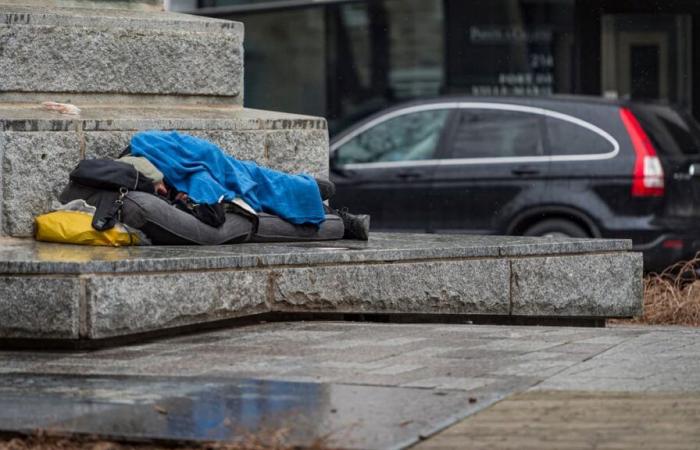The Minister responsible for Social Services, Lionel Carmant, announced on Wednesday an investment of $1 million for the creation of a program which aims to remove around a hundred people suffering from mental illnesses and drug addiction from the streets of Quebec per year.
“Those who suffer from mental health or addiction problems cannot go to shelters because of their manifestations or do not want to go there because they do not feel like they belong there. What we come to tell them is: “We offer you a roof over your head, we offer you accommodation with mental health support,” he explained during a press scrum at the Estates General of homelessness in Quebec.
The Minister responsible for Social Services, Lionel Carmant, suggested that, if the results are conclusive in the Capitale-Nationale, other regions such as Estrie and Abitibi-Témiscamingue could also benefit.
Photo Le Journal de Québec Vincent Desbiens
The Homelessness and Mental Health Reaffiliation Program (PRISM) will, among other things, provide temporary accommodation and medical and psychosocial support for a period of 8 to 12 weeks to people experiencing homelessness who demonstrate their interest.
Transition room
To do this, Lauberivière will reserve 24 beds at all times to temporarily house these individuals in transition between the street and housing. The shelter’s clinical coordinator, Frédéric Lapointe, was delighted with this new tool made available to stakeholders.
“It’s an enhancement of our recovery sector to help as many people as possible. […] We know that if we give them good programming and good support, that’s what works to get people off the street.”
After the period of two to three months, the CIUSSS de la Capitale-Nationale, in collaboration with the Office municipal d’habitation de Québec (OMHQ), will be responsible for finding them an apartment or social housing.
Ready in early 2025
Minister Carmant affirmed that the program would come into force in January 2025. The deputy director, partnerships and homelessness, of the CIUSSS, Frédéric Keck, and Mr. Lapointe agreed, specifying however that it would take a period of adaptation.
“As with all new services, it will take some time to operate at full capacity. We will have to do tests at the beginning, but we are hopeful of deploying the program at the beginning of 2025,” underlined Mr. Keck.
Rake wide
He also emphasized the fact that the PRISM which will be implemented in Quebec will be less restrictive than the one which has been in force in Montreal since 2013.
“We are not only limiting ourselves to mental health problems, but we are also opening the door to addictions and other behavioral disorders. The goal is to cast a wide net as possible to allow everyone who wants help to get it.”
The government has already assured that the new program will benefit from recurring funding every year for at least five years.






